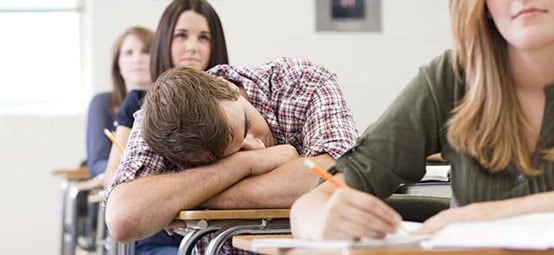
To examine the relationship between sleep and school functioning in adolescence, the researchers evaluated the sleep habits of 48 students from a school in central London. They used several metrics to gather data on sleep and academic achievement, including:
- The School Sleep Habits Survey (SSHS)
- Sleep diaries
- School records of students’ grade point averages
- Raven’s Standard Progressive Matrices, which measure cognitive processing
- A self-report questionnaire about stimulant consumption, media use, and exercise
On average, the students reported sleeping just over seven hours per night. The average bedtime was 11:37 p.m. Students’ total sleep time and weekday bedtimes were strongly associated with academic achievement. The students’ sleep/wake behavior was linked with cognitive processing.
Environmental factors, like caffeine consumption, had a significant impact on sleep as well. Stimulant consumption and use of electronic media before bed affected total sleep time and weekday bedtime. In turn, these factors were negatively associated with academic performance. Exercise was not shown to affect sleep, but it was linked with better academic performance.
The study contributes to mounting evidence of the importance of sleep in adolescent life. Parents, students, and educators need to be aware of the effects of sleep on academic performance.
This research is published in the journal Frontiers in Psychology.
Read more sleep-related articles:



 © 2024 Unyte Health US Inc.
© 2024 Unyte Health US Inc.